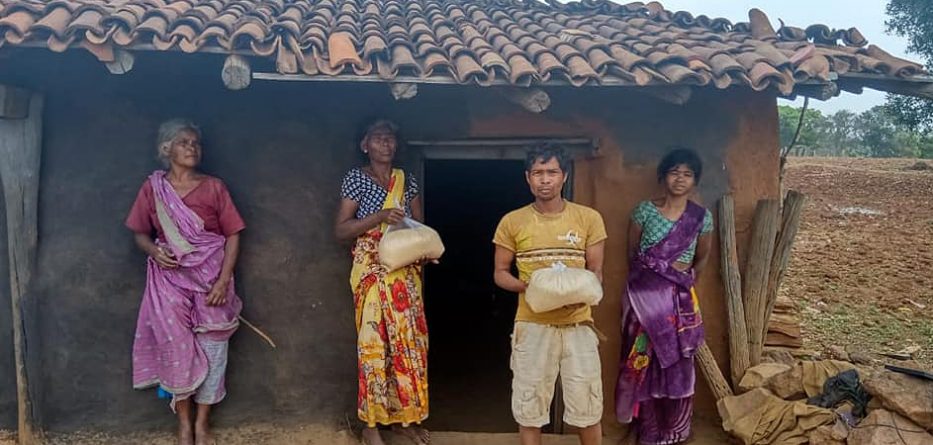As India struggles to contain the COVID-19 pandemic, Australians are enabling Hazaribag’s Jesuits to provide vital community care
In his six decades working as a missionary in Hazaribag in India’s Jharkhand state, Fr Bob Slattery SJ has seen nothing quite as devastating as the COVID-19 pandemic.
“At the time of the famine [of 1966], it was very bad. But it was nothing like this. We’ve never seen this, and we hope never to see it again.”
Across the country, an estimated 10 million so-called daily wage labourers – migrant workers who earn just enough each day to feed themselves – have been left with nothing to eat and no easy way home.
“Men, women, youth and children [are] walking miles after miles to reach home with hunger and thirst, broken feet and swollen legs,” explains Fr Francis Marian SJ, Project and Programme Coordinator at Arrupe Niwas.
One such man walked all the way to Hazaribag from Calcutta, a distance of 435km. When he finally arrived at his destination he was diagnosed with coronavirus. With just three hospitals in the whole of Jharkhand state – whose population exceeds 30 million – and a shortage of test kits, few people are being diagnosed or treated in a timely manner.
This crippling poverty and lack of resources has amplified the catastrophe and galvanised the Jesuits, impelling them to draw on their deep well of experience working with disadvantaged communities in Hazaribag. With the enduring support of Jesuit Mission and communities in Australia, the Jesuits have been a reassuring presence here since 1951, when six young Australian novices established a mission here.
Relying on this same self-support when lockdown was announced in India in March, the Jesuits sprang into action on behalf of their community, networking with fellow NGOs, determining how best to access stricken communities, identifying the poor, educating them about social distancing and providing them with dry rations and sanitation items.
Among those hit hardest by the crisis have been remote tribes, undocumented gypsies and farming communities; already dealing with crop failure due to unseasonal rains, farmers are now unable to harvest their wheat crops due to the lockdown. While the government is meeting urgent needs by distributing monthly rice rations, they’re often not enough to feed a large family. An important element of the Jesuits’ work, therefore, is identifying those who might be missing out on government interventions and providing them with additional support – and ensuring, says Fr Francis, that “no-one goes to sleep with teary eyes and hungry stomach.”
Like in India, cases of coronavirus are multiplying day by day in many vulnerable parts of the world, and the Jesuits on the ground are buoyed by the spiritual succour they find in their community – and the ongoing solidarity of their Australian supporters.
“Our Jesuit partners in countries like Cambodia, Timor, Myanmar, Thailand and India are quickly responding to those communities who are struggling to survive the extreme hardships brought about by the COVID-19 pandemic. We will work with our partners to deliver immediate support – in whatever form necessary – where the need is greatest,” says Helen Forde, CEO of Jesuit Mission.
“I want to say a heartfelt thankfulness for our friends – it is their help, their support which is actually an inspiration for us to continue the work,” says Fr Francis as he makes his way around affected communities in Hazaribag.
“Their inspiration makes us go forward without any fear.”
If you would like to know more about how the Jesuits are responding to the impact of COVID-19 in the marginalised parts of the world, visit – https://jesuitmission.org.au/latest/coronavirus/ground-impact/
In this time of global crisis, Jesuit Mission is endeavouring to help deliver immediate support to wherever the need is greatest. Visit Jesuit Mission Emergency Action Fund at https://jesuitmission.org.au/give/actionfund/
With thanks to Jesuit Mission.








